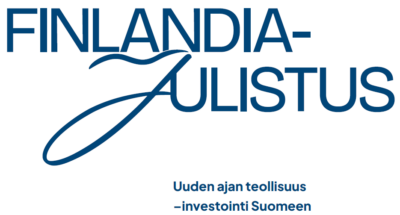VTT Report: AI and Transition to Renewables Shape the Future of the Finnish Chemical Industry

Renewable and bio-based feedstock, the utilization of artificial intelligence and data, the talent availability crisis, and geopolitical tensions significantly influence the development of the Finnish chemical industry, according to the Future Directions Through Strategic Foresight report commissioned by the Chemical Industry Federation of Finland from VTT, conducted in early 2024. The report aimed to identify key trends shaping the sector’s future, help the industry prepare for them, and guide towards more sustainable operations.
The findings of the report hold both economic and societal significance, as the chemical industry is Finland’s second-largest export sector. It accounts for about one-fifth of the country’s industrial goods exports and directly, indirectly, and through income effects, employs around 100,000 people. The steps taken by the chemical industry toward carbon neutrality and technological advancements, are critical for the sustainability transition of various sectors.
Climate Goals Cannot Be Achieved Without the Chemical Industry
Finland aims to be carbon neutral by 2035, and achieving climate goals is impossible without the chemical industry. The development of a more sustainable chemical industry relies on more efficient circular economy solutions, carbon capture and utilization, and the use of bio-based feedstock.
The VTT report states that while these advancements require investments, they also create technological and business opportunities. According to a report published in August on carbon capture and utilization (CCU), the value of CCU products in Finland could reach up to seven billion euros annually by 2040. European policies are also emphasizing decoupling economic growth from the use of fossils, accelerating circular economy models, local value chains, and the development of new materials.
– The transition of the chemical industry is based on renewable feedstock, circular economy and hydrogen economy, new production processes, and new products. Data management is crucial to providing sustainable solutions that the chemical industry offers to its customers, enhancing human well-being, says Alexandra Peth, Innovation Advisor at the Chemical Industry Federation of Finland.
AI Supports the Industry’s Green Transition
Artificial intelligence and data utilization are fundamentally changing the industrial landscape. AI revolutionizes the development of new materials and chemicals by speeding up development processes, reducing costs, and improving supply chain transparency. The use of digital metaverses, such as digital twins of production plants, makes product development and process testing more efficient and environmentally friendly.
The VTT report helps chemical industry companies make the right decisions for the green transition and, for example, regarding the availability of skilled professionals. Like other industries, the chemical sector faces a growing challenge in finding skilled workers as the population ages and the need for expertise increases. Flexible education models and a stronger focus on science and technology education are required to address this crisis.
Global tensions and competition for critical resources are intensifying. India’s rise as a key manufacturing center for the chemical industry and Africa’s abundant natural resources reflect changing dynamics. Additionally, the melting ice cover in the Arctic accelerates the exploration of minerals, oil, and gas, while the space economy is expected to grow into a trillion-dollar market by 2030.
– The foresight report highlighted that the transition brings significant opportunities as well as challenges, Peth explains. – Challenges include raw material availability, outdated infrastructure, investment cycles, and regulatory and business-related risks. On the other hand, it is crucial for the Finnish chemical industry to recognize the immense opportunities for innovation and collaboration that the future presents.




